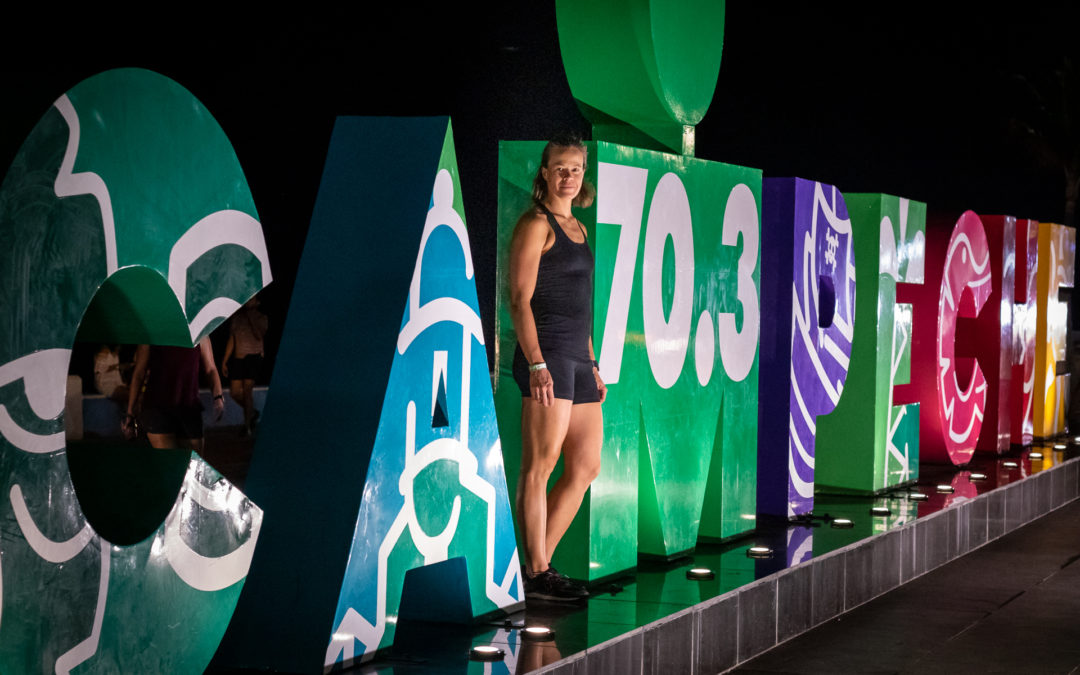“They cancelled the NBA,” Brad said, glancing up from his phone as we stood beneath a digital sign reading “Cancun,” awaiting our boarding group. Brad had been warning me ominously about the inevitable cancellation of my upcoming race for over three weeks now, and yet each time I checked, the Ironman website still showed all races proceeding as planned. The pandemic had already seeped into nearly every country across the globe by now, but Mexico was thus far untouched. Maybe Mexico was actually the best place to be headed?
This was a trip I had been planning for a year now, our first international travel in almost a decade, and I had spent the last nine months diligently consuming podcasts, books and online courses in Spanish, determined to be a fluent speaker by the time we arrived. The Ironman 70.3 Campeche race was an excuse to explore a new country and immerse ourselves in a different culture, and I was eager for the opportunity to learn, and to experience a new place.
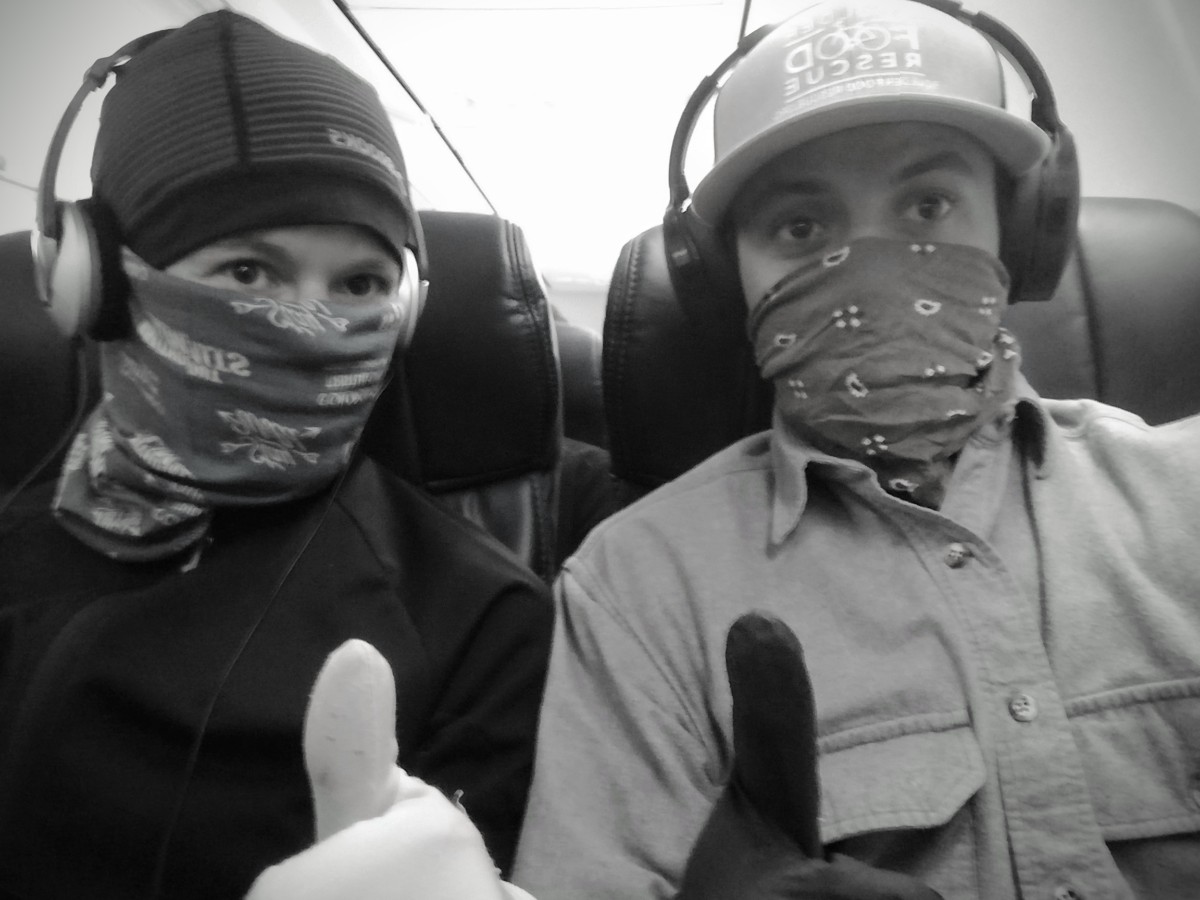
But that excitement had given way to unease. Doubts clung to us as we boarded the plane. Bundled appropriately for the Denver chill, we endured the entire flight with faces covered and gloves on, too nervous to eat or drink, tensing each time we heard a passenger cough or sneeze.
Once in the customs line in Cancun, the 85 degree heat forced us to shed our extra layers of protection. It was clear we were the only people there with contagion on our minds. People crowded close together in long lines while impatient children darted back and forth, anxious to start their tropical vacations.
We were relieved that the second leg of our trip was in the safety and privacy of a rental car, a six hour drive across the Yucatan Peninsula, bringing us to our destination on the Gulf of Mexico, just before midnight.
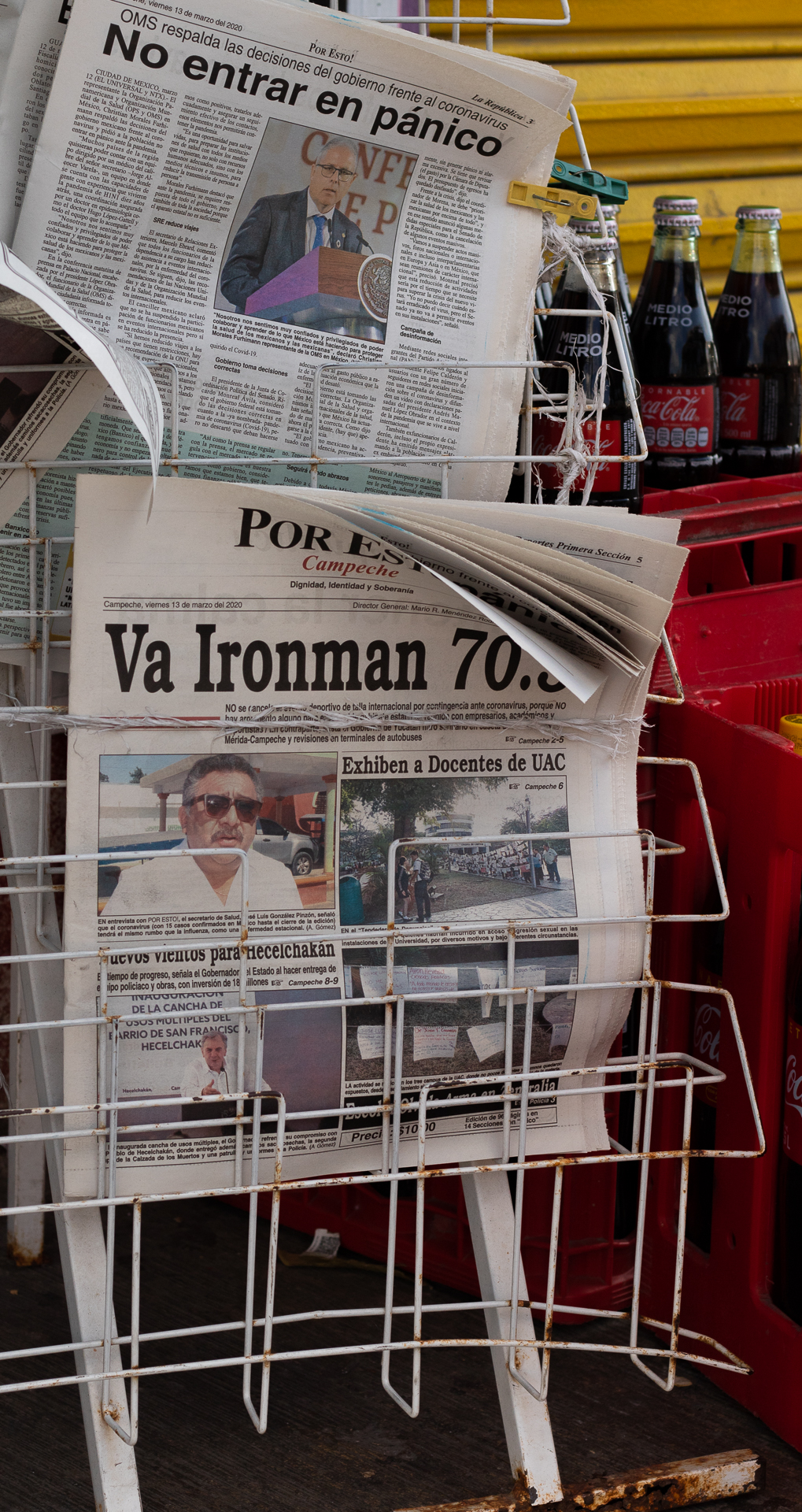
“Do Not Panic” reads the top headline, Brad Goodell/Unboxed Photography
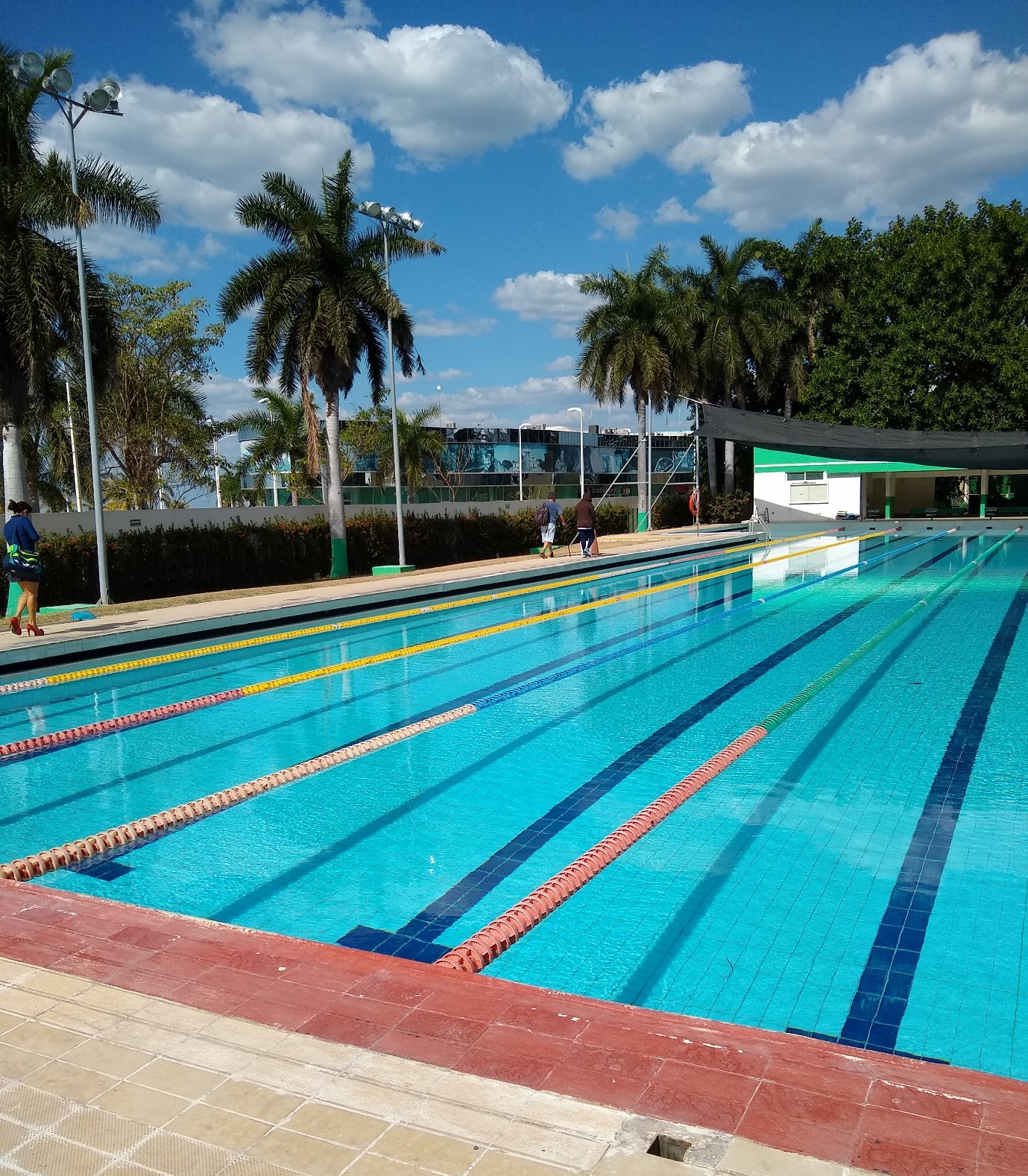
Unidad Deportiva 20 de Noviembre
I explored the city on foot, jogging through crumbling old neighborhoods with impossibly narrow sidewalks, and along the coastline, where the city’s recent oil industry prosperity manifested in wide, palm-lined bike paths and a busy main thoroughfare.
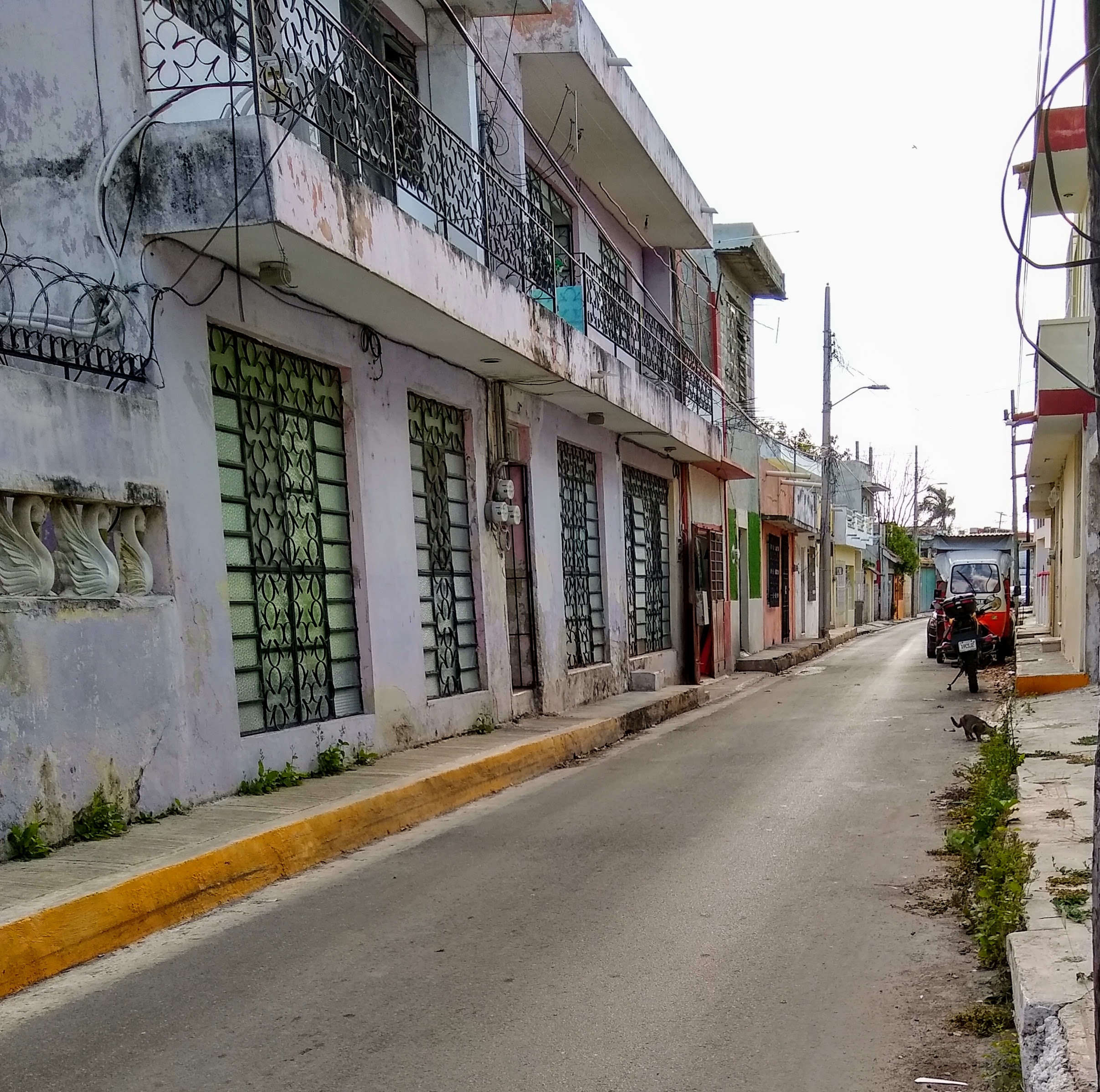
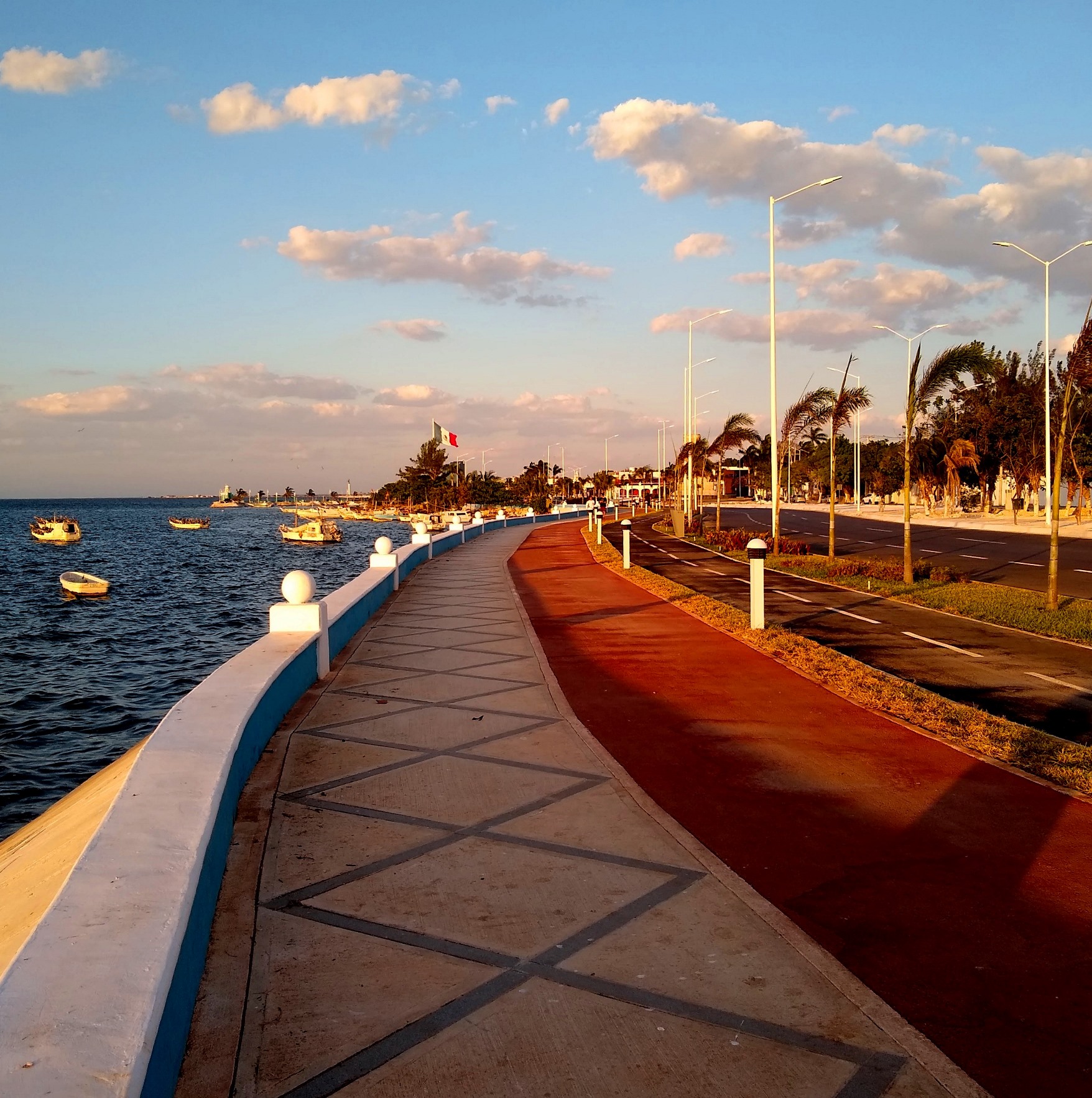

In Mexico, people seemed unaware, or at least unconcerned, about the panic that was taking root around the world. The news from home seemed like fiction; schools cancelled for the rest of the year, stores being inexplicably raided of toilet paper. But in Campeche, the restaurants were packed, the Old City center market was bustling, and tourists crowded together for photo ops.

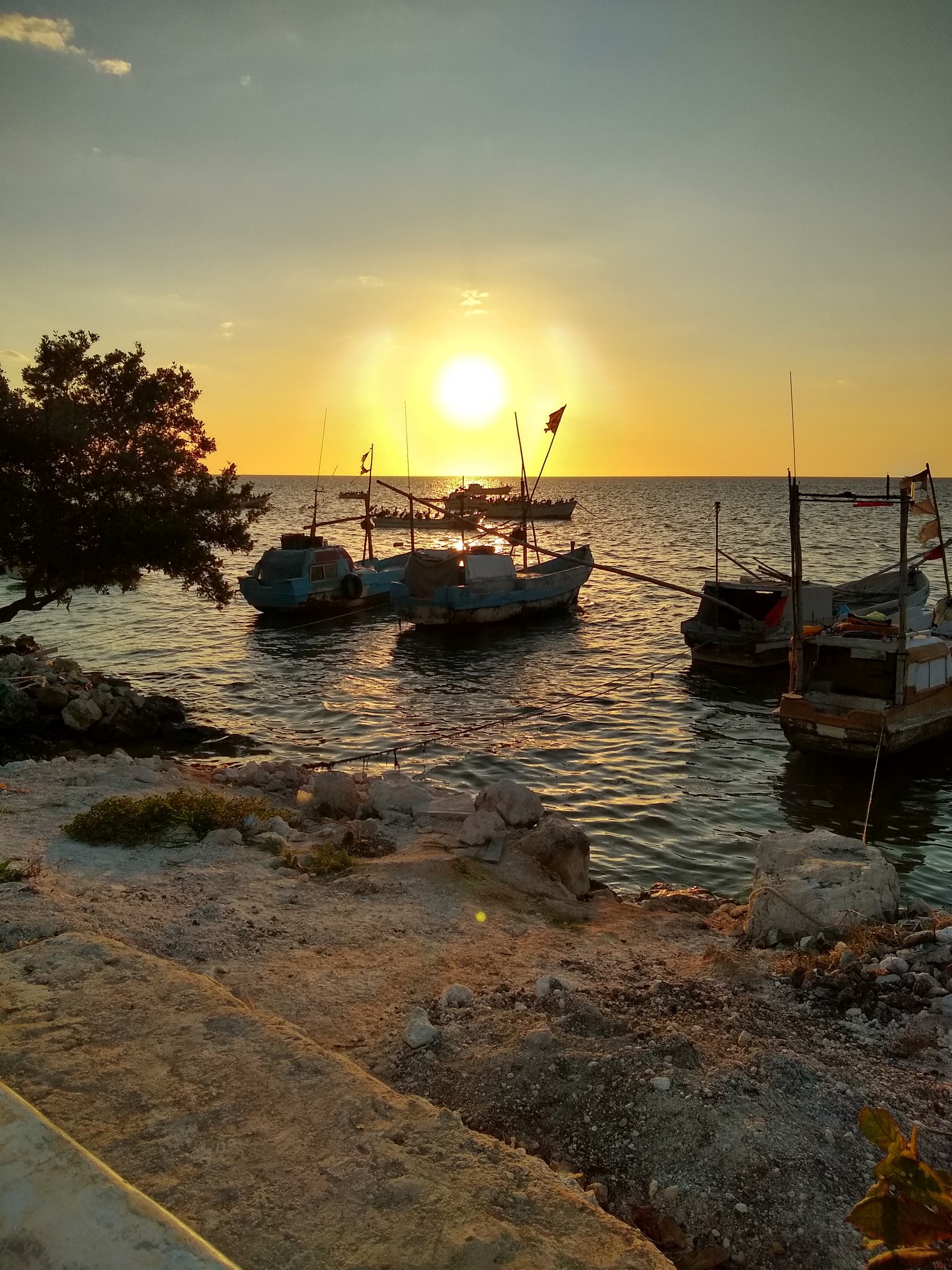
I checked my email throughout the day on Friday, waiting for Ironman to follow suit with all the other race companies, informing us regretfully of the last minute cancellation of Sunday’s race.
That night I had such vivid dreams about what the email would say, and the disappointment that would follow, that I woke up disoriented, and mystified to discover that as of Saturday March 14th, we still had a race to attend.
Ironman cancelled the pre-race briefings to limit the crowds, and we were notified that hugs and handshakes should be avoided on the post-race podium. But otherwise, the race was on.
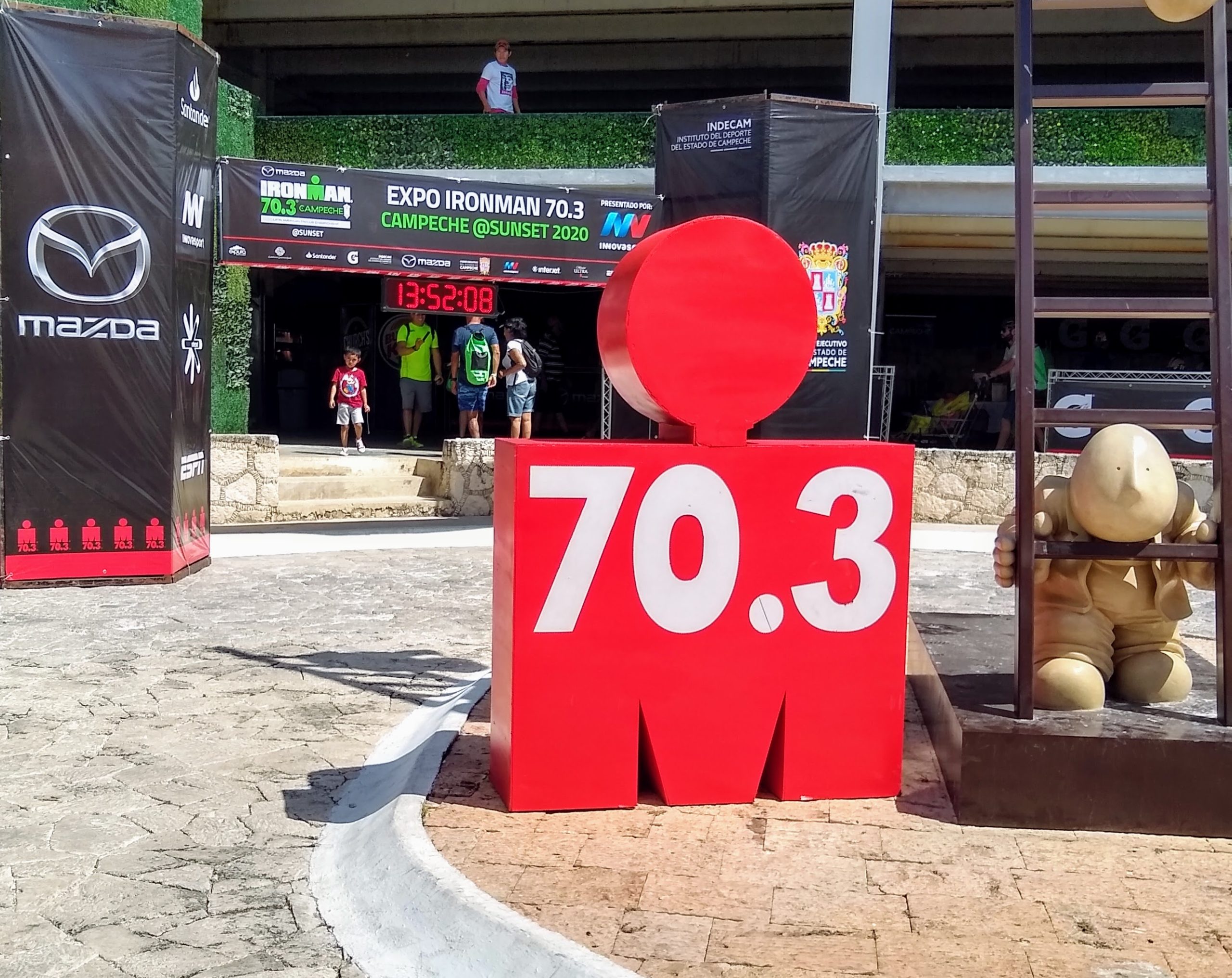
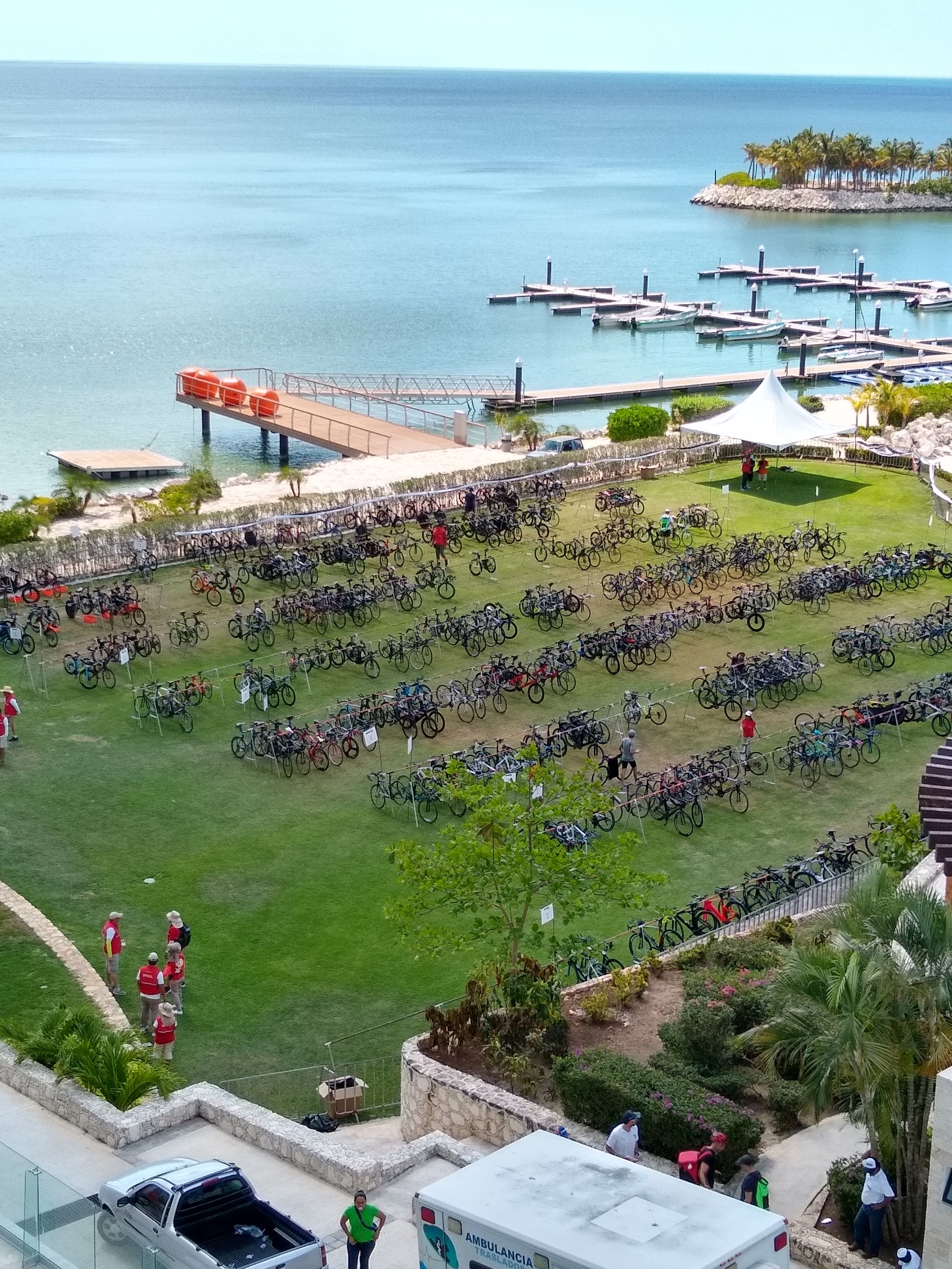
T1 at the Campeche Country Club
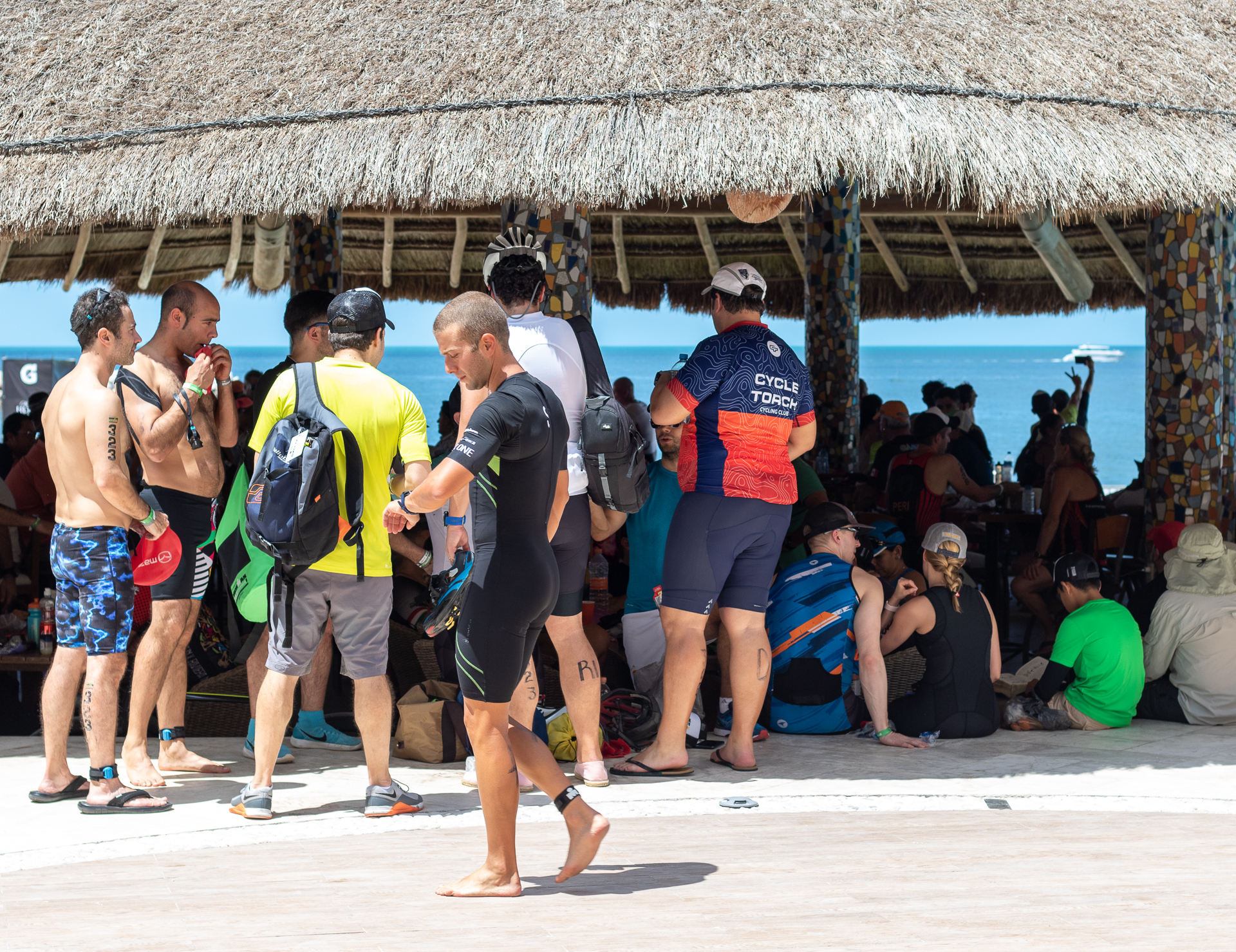
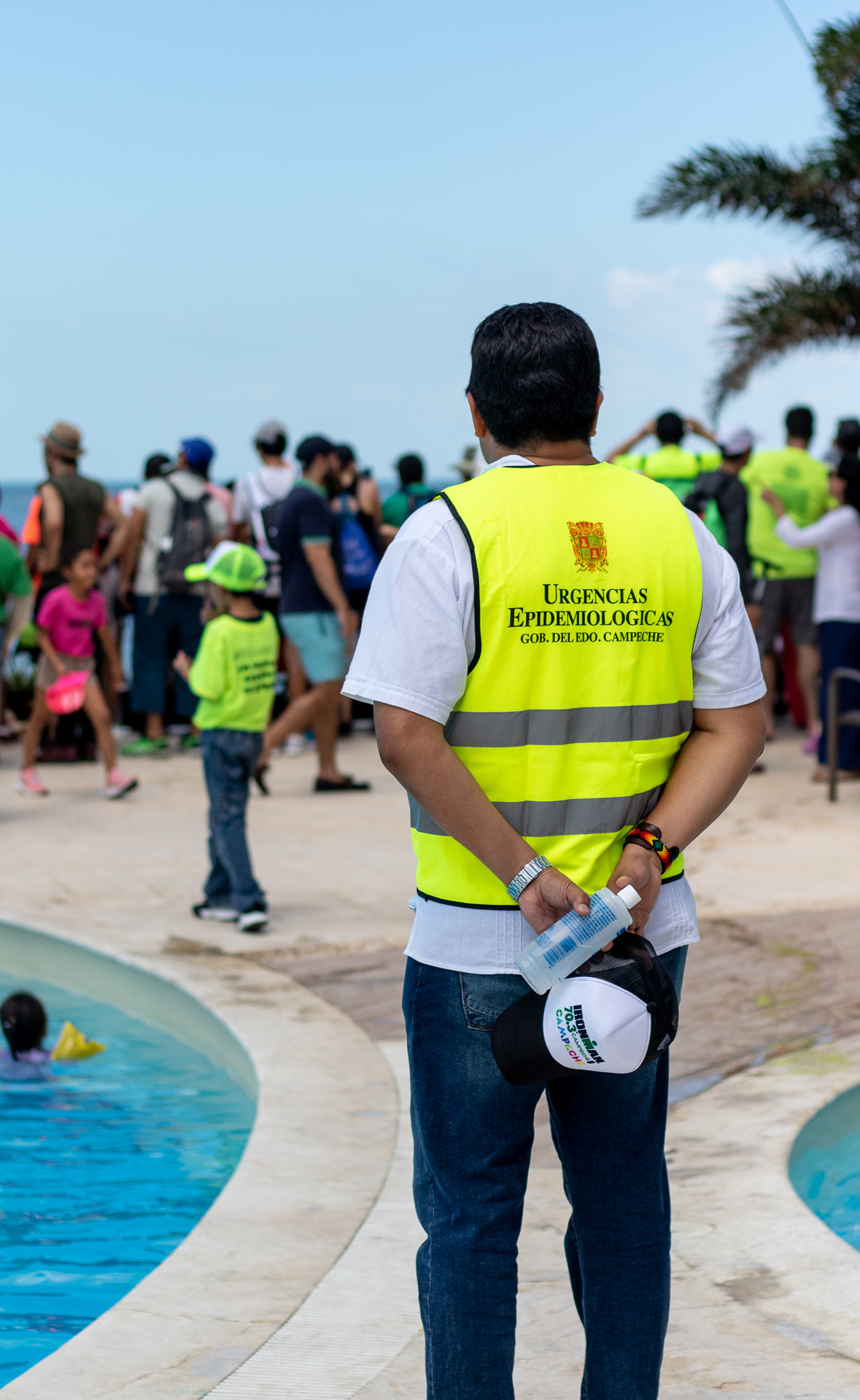
The guy in charge of emergency hand sanitizer
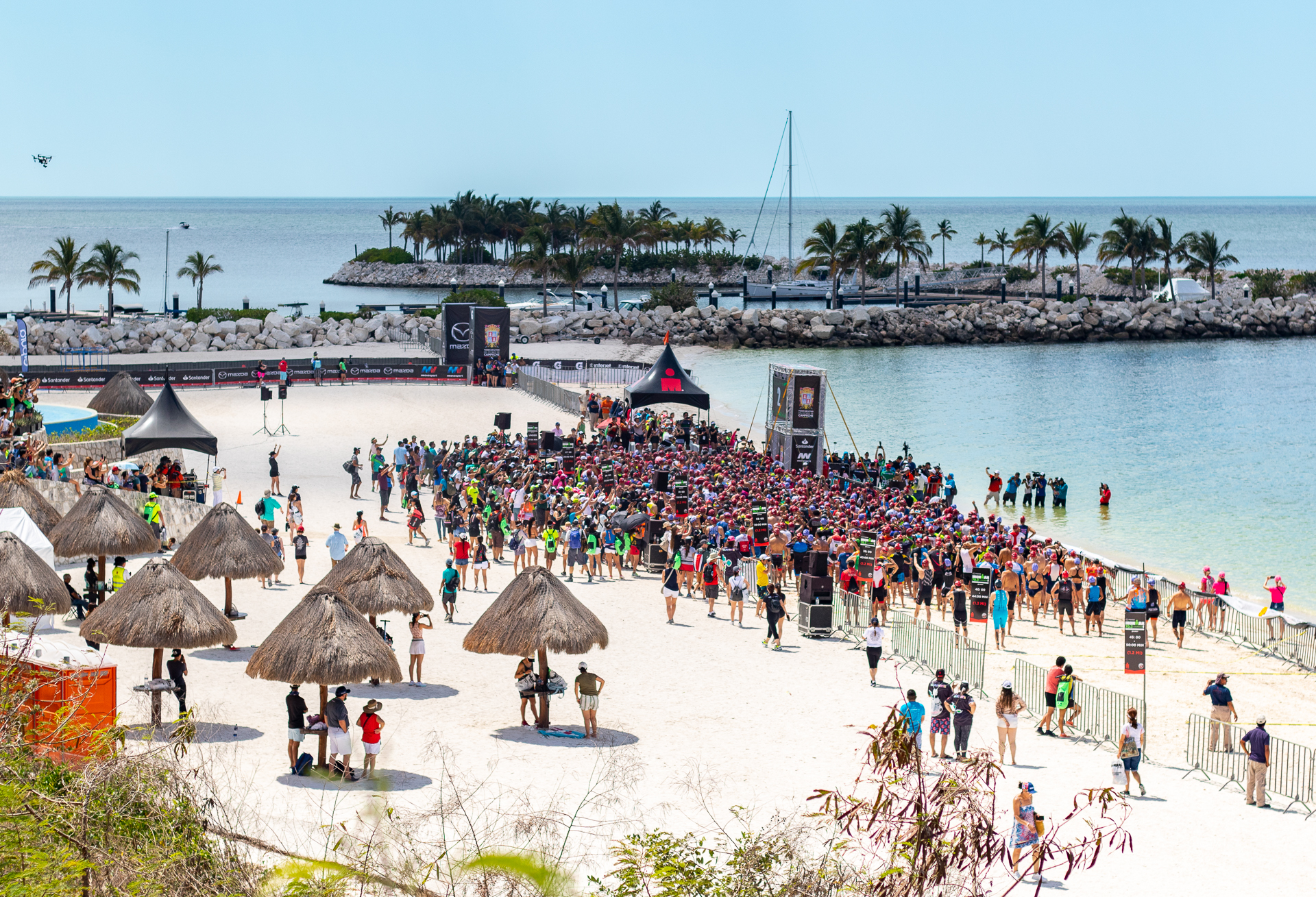
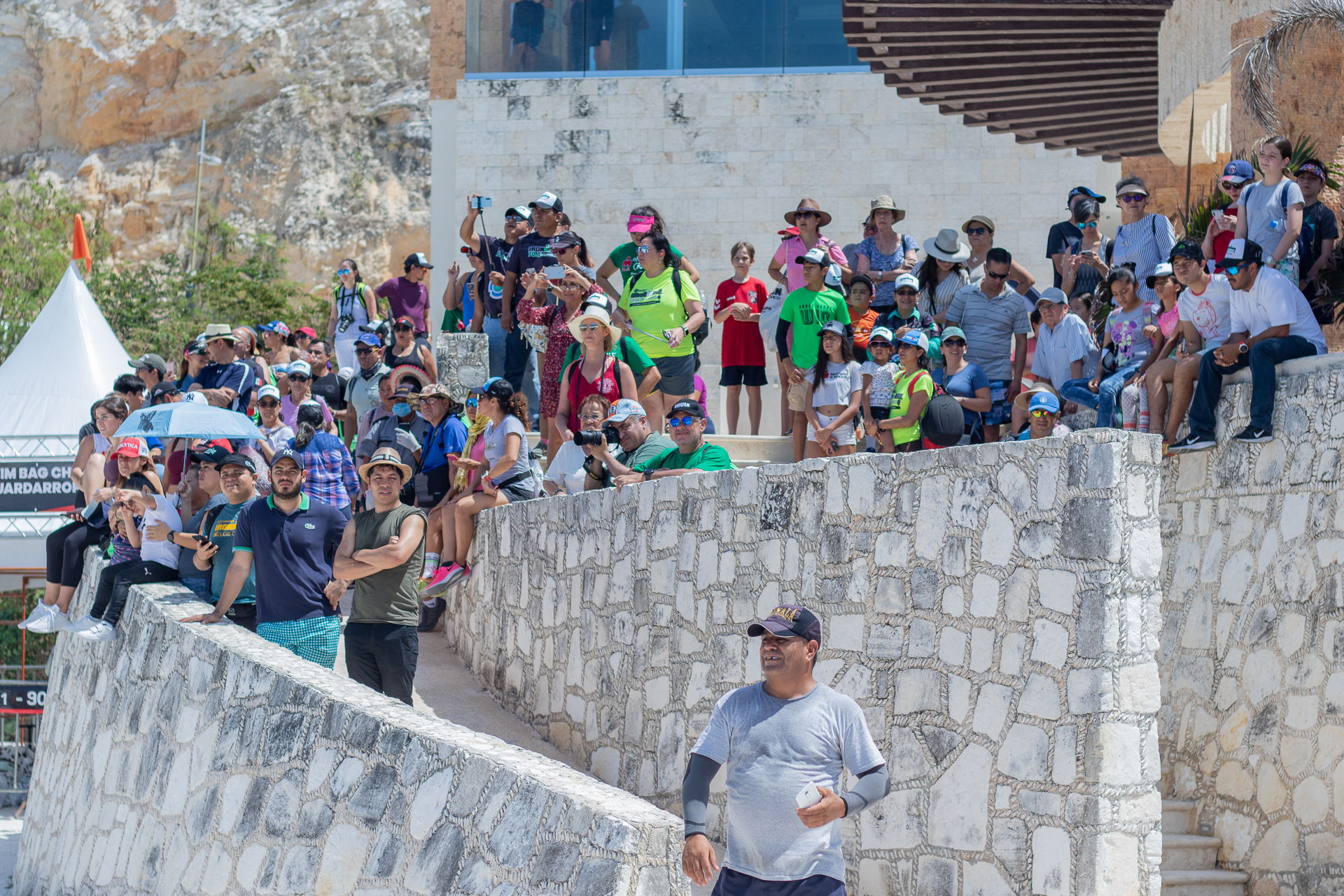
The bike route toured us right through the center of town, along the wide roads that traced the shoreline, and then inland along a sweltering hot highway. This was where a key part of my race strategy took place: hydration. I had myself on a schedule to drink every three minutes throughout the entire ride. I took in 8 bottles of fluid for a 2.5 hour ride!
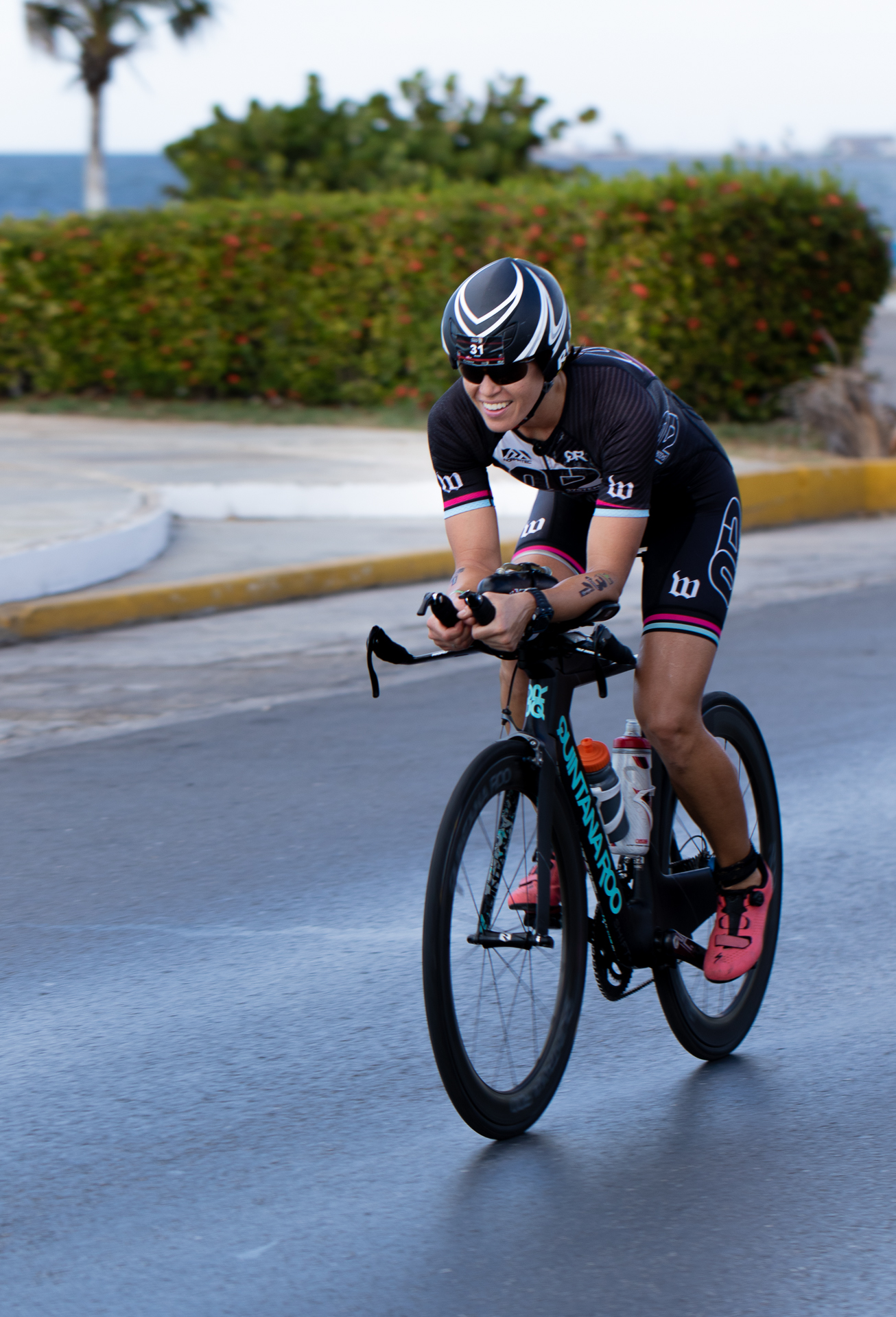
This had me well set up for the brutally hot run. Aid stations were handing out little plastic pouches of water, which you tear open with your teeth to drink from. They’re easier to grab from volunteers, easier to drink from, and easy to carry with you, I loved it!
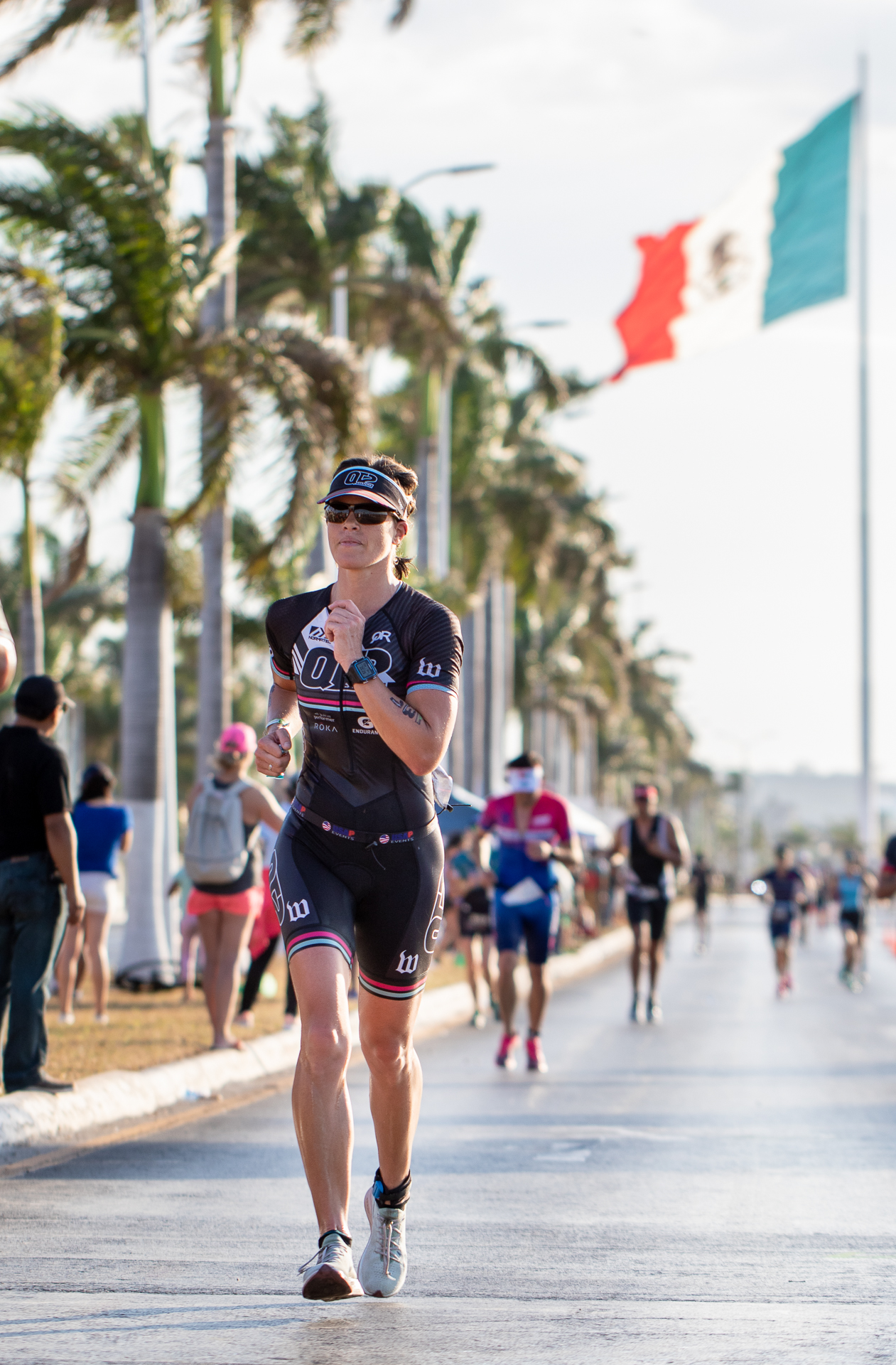
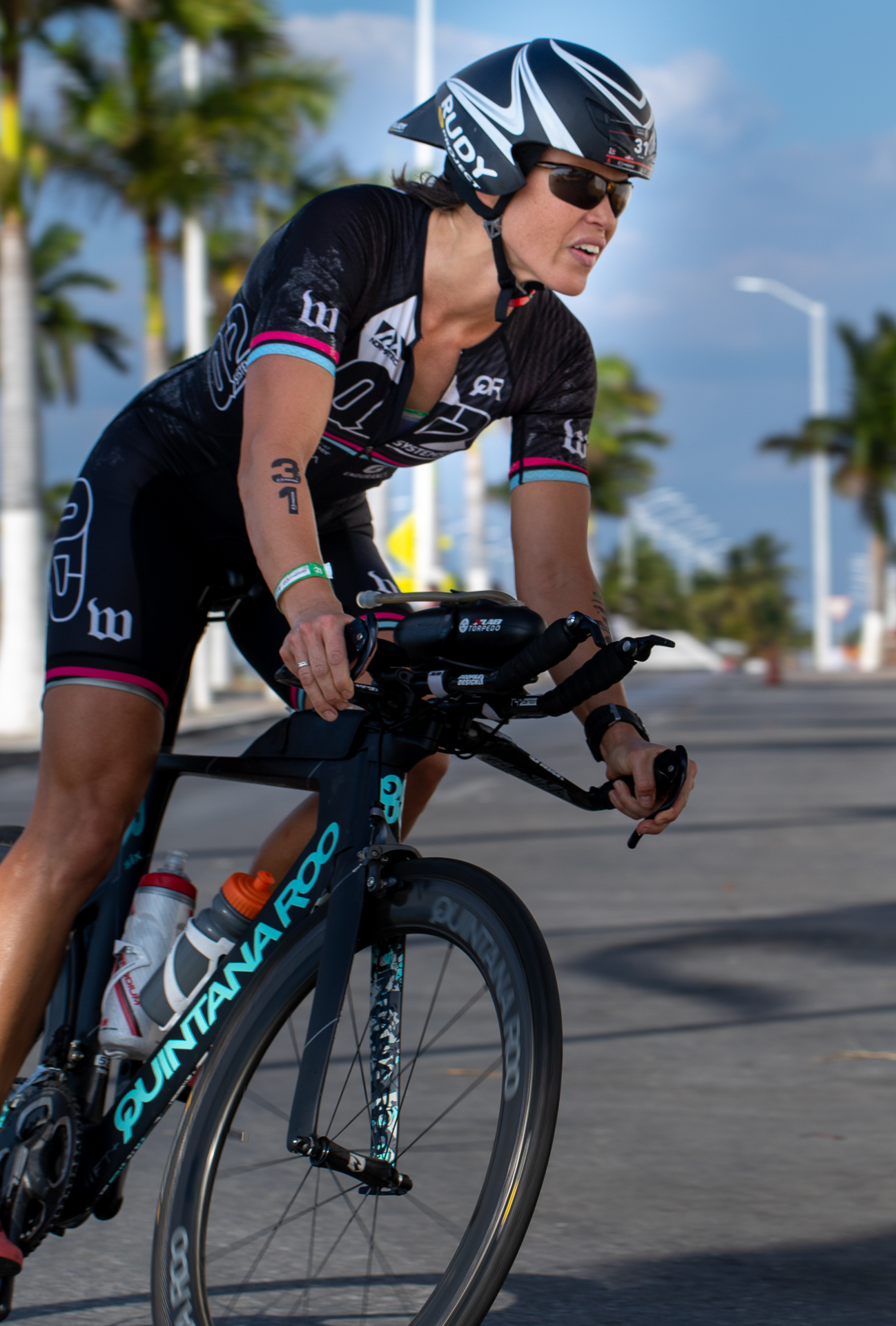
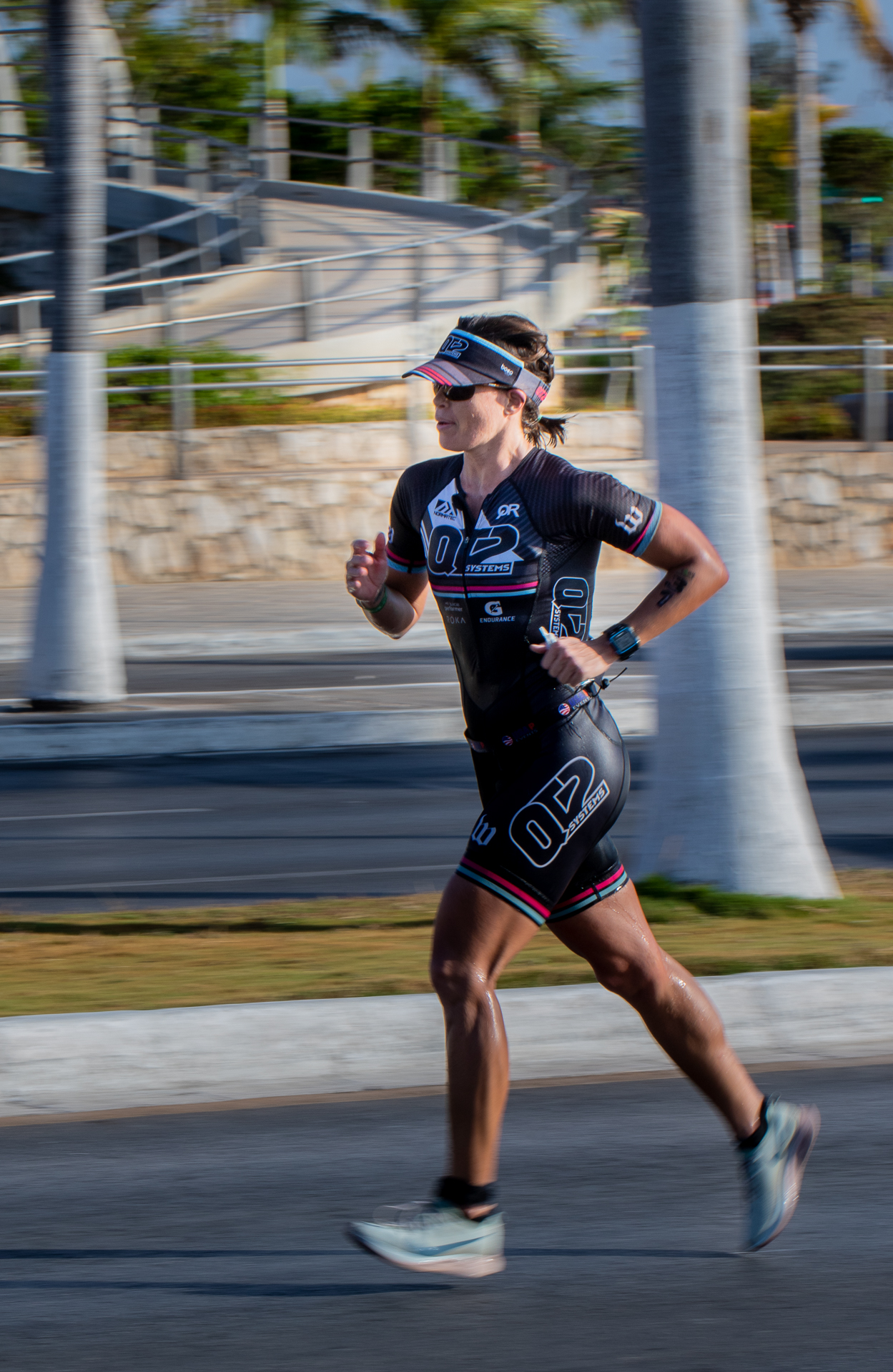
Race photos by Brad Goodell / Unboxed Photography
The objective of the afternoon race start was to save us from the worst heat of the day, but for every degree the temperature dropped, the wind ramped up in exchange. We had a heavy headwind coming up the coast, a little stronger with each lap. On the third and final lap, I closed in on 4th place with 5k to go. Having never been in 4th place in the pro field this late in a race, this move put a little extra pep in my step, and I charged hard into the wind, reversing the steady decline my pace had been suffering as I battled with the heat.
I came around the corner to the finish line overjoyed, and overwhelmed with gratitude to have gotten one last chance to race, knowing I now had this single incredible moment to savor, no matter what uncertainties lay ahead.
At an age when most pros are retiring from the sport, I got the closest I’ve ever been to the pro podium. It was thrilling.
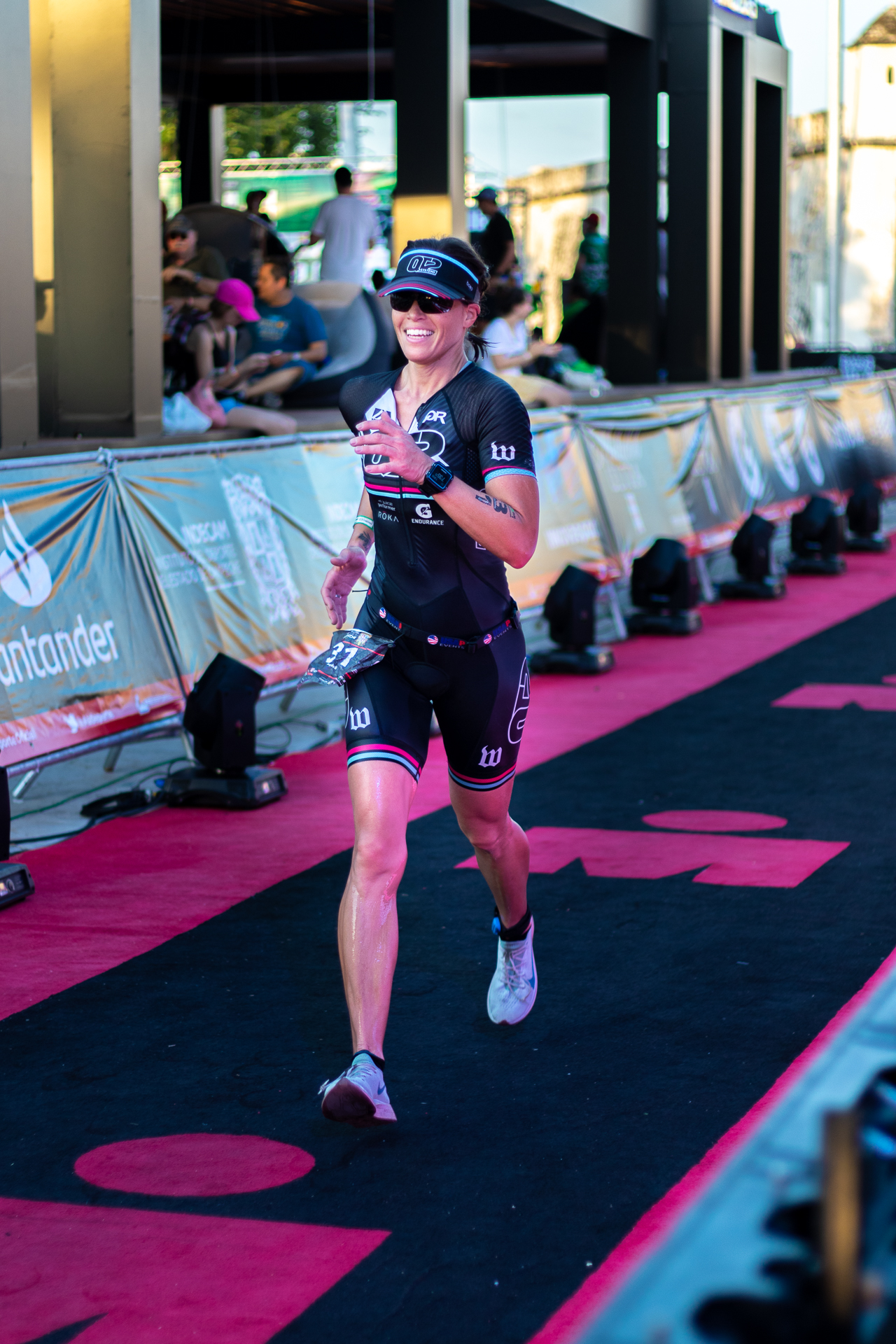
I finished the race a little before sunset, and especially given my exciting race result, it was perfect timing for a Mexican feast, complete with beer and ice cream to celebrate. But we skipped the celebration this time. By Sunday evening, Brad had received multiple texts from friends and family with connections to the U.S. government, and the message was clear: Get home as fast as you can. There were rumors that businesses back home may be getting shut down within the next day or two, but even more worrisome were the warnings of a possible border closure. We considered the very real possibility that we could get stranded in Mexico indefinitely, and we scrapped our plans to attend the awards ceremony and then explore for the next few days, and booked the first available flight out of Cancun. I quickly packed up my bike and we loaded our gear into the car, driving through the night (which turned out to be no problem for me, given how much caffeine I had consumed during the race.)
The nighttime trek across the Yucatan was mostly uneventful, with the exception of a few checkpoints. Most were the usual; groups of men dressed in military attire with enormous semi-automatic weapons slung over their shoulders, who barely made eye contact with us before waving us through. But then we were stopped and questioned at a checkpoint labeled “Sanidad,” staffed with officials wearing masks and biohazard suits. They spoke minimal English, and inquired where we were from and how long we had stayed. I nervously butchered the Spanish I had so carefully studied, giving them a word salad of Spanglish with a sprinkling of French. The officials debated amongst themselves in front of us, trying to sort out which U.S. states were “on the list.” It wasn’t Colorado? No, it was California. They’re not from California. Colorado is fine? (I’d been following the case counts from Colorado, and I knew Colorado was not fine, but I waited patiently while they decided our fate). In the end, we were sent on our way, with a flier explaining how to wash your hands.
After that, we opted for the longer route to the airport, staying off the main toll road to avoid the checkpoints. I had envisioned quaint little villages along this rural route, but as the sun rose and we could see the details of the small towns we passed through, the poverty of this region was stark. Stray dogs roamed the streets, and living quarters and tiny shops were fashioned out of whatever materials were available. Traffic was slowed by an abundance of speed bumps in the road, but it struck me how sad it was for people to live in such a remote area and still have traffic and tour buses streaming through all day long.
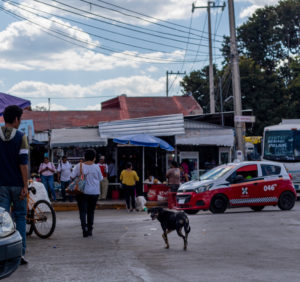
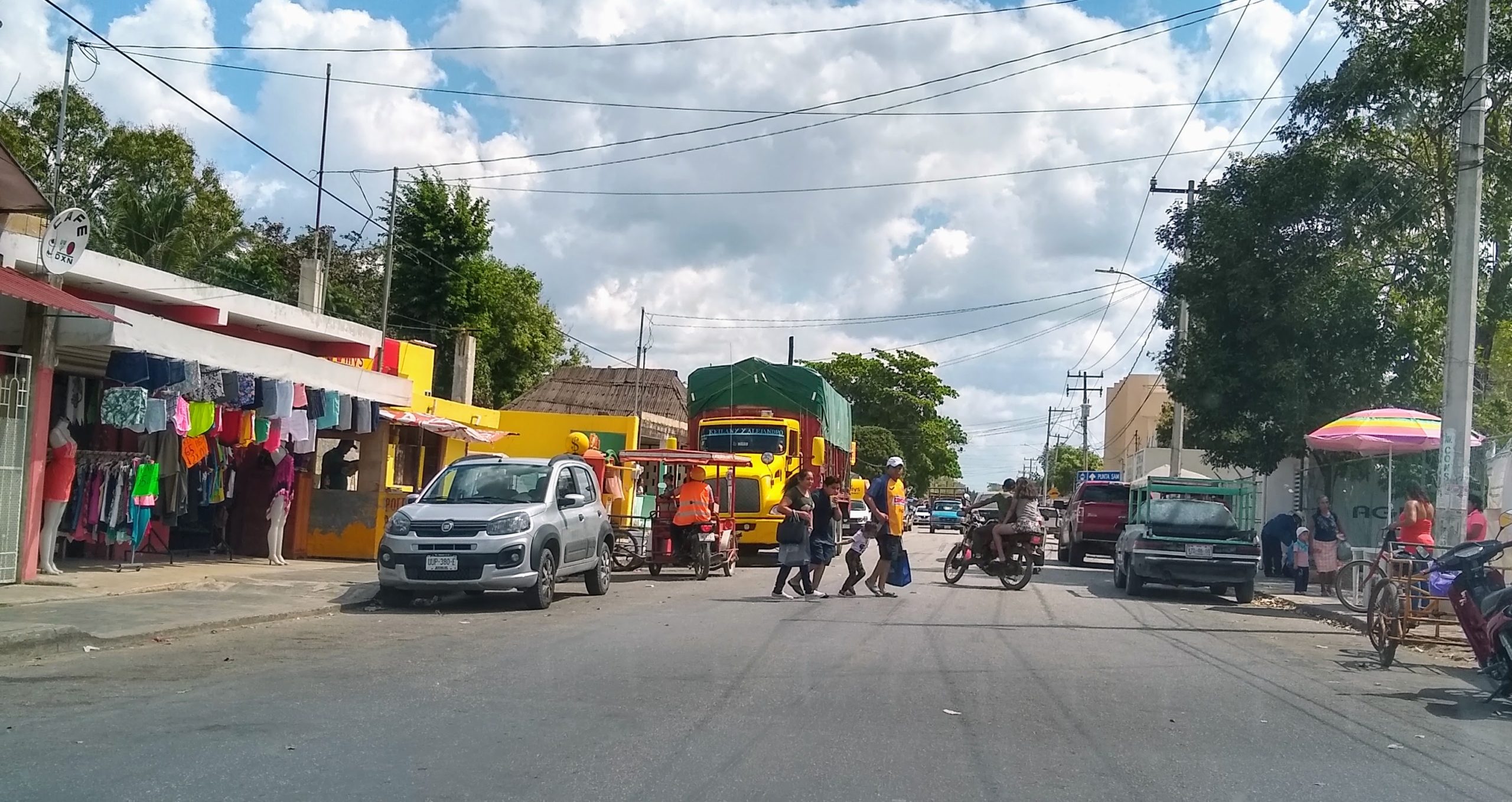
The rest of our journey went smoothly, other than the confiscation of my peanut butter at airport security…(since when is peanut butter a liquid?) We endured another uncomfortably bundled plane ride, and breathed a sigh of relief when we finally touched down in Denver, ready to face confinement at home for what was rapidly beginning to look like a lot longer than just two weeks.
What a strange new world it has become.
